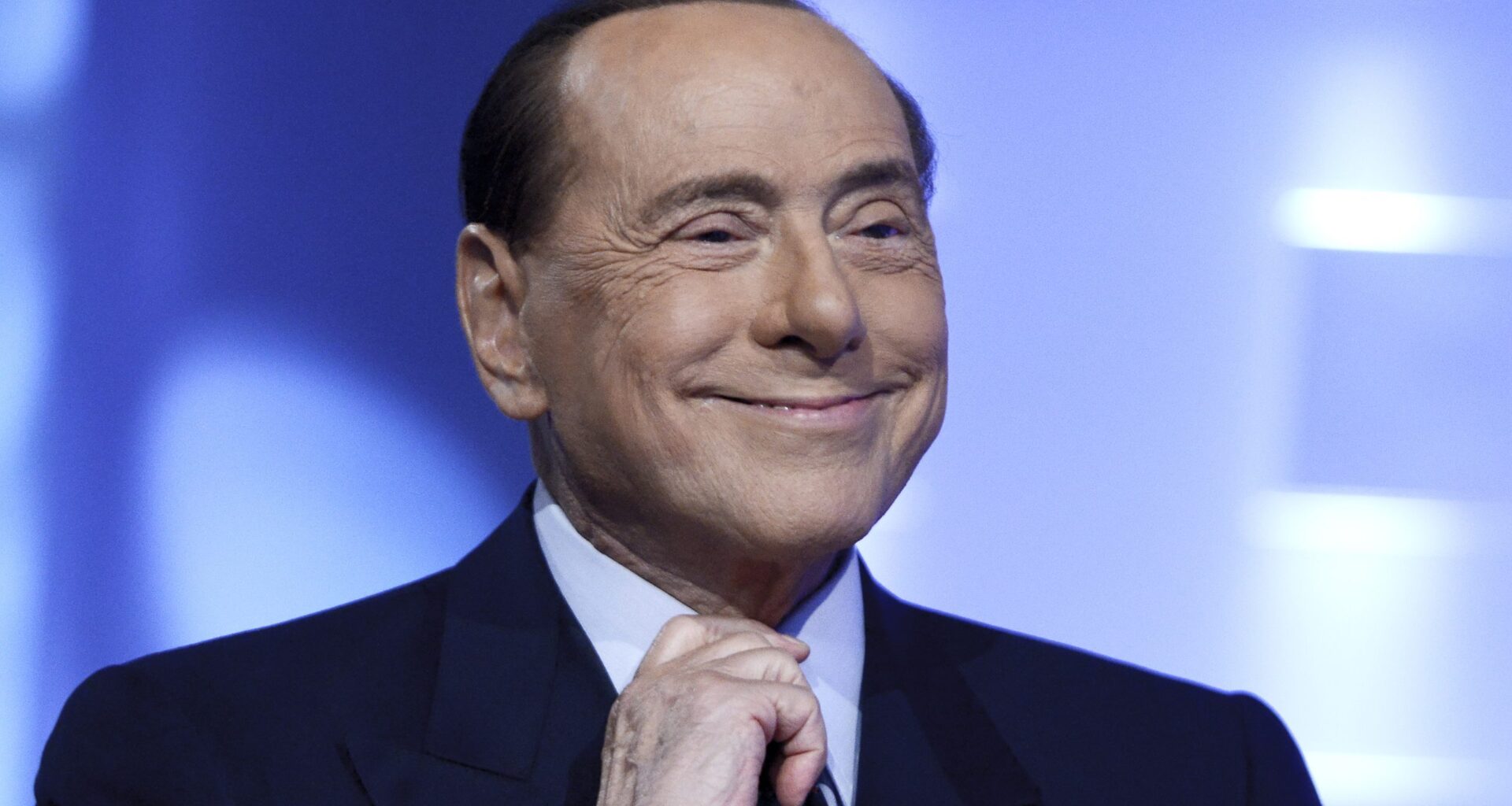BERLIN – A brief wave of political nostalgia swept through the German government’s press briefing in Berlin this week, when a spokesperson announced that Silvio Berlusconi would be the next high-profile guest to visit Friedrich Merz’s Chancellery.
One problem: the longest-serving prime minister of post-war Italy died two years ago – as a member of the press corps quickly pointed out.
In fact, it’s not Silvio, but his son Pier Silvio Berlusconi who’s been invited to Berlin to discuss his family’s attempt to take over Germany’s second-largest private media company, ProSiebenSat.1, via the late patriarch’s media empire, MediaForEurope (MFE).
The plans initially surfaced in March, but MFE announced on Monday that it would raise its offer to stakeholders to take full control of the company, in which it currently holds a 30% stake.
The move has aggravated concerns about the editorial direction of ProsiebenSat.1, which operates two of Germany’s largest private broadcasters, prompting rare interference from Berlin.
“A change of ownership must not lead to a restriction of journalistic independence,” warned Germany’s Commissioner for Culture and the Media, Wolfram Weimer. He said that he had invited Berlusconi, as it was important to review “who is behind” the takeover of “such an important institution”.
The bid has revived the spectre of Silvio Berlusconi – the four-term prime minister, media magnate, and former owner of the football club AC Milan.
The German press long viewed his string of private and political scandals from afar, often with a mixture of fascination and disdain.
In the late 2000s, as EU countries like Italy struggled under billion-euro debt burdens, frugal Germans were bewildered by the repeated electoral success of Berlusconi and his centre-right party, now known as Forza Italia.
That frustration was rooted not only in his stubborn reluctance to reform Italy’s debt-laden economy, but also in Berlusconi’s repeated legal entanglements, including allegations of tax fraud and bribery – such as paying hush money over his infamous ‘bunga bunga’ sex parties. He denied all charges.
Independence at stake?
These days, the focus of German concerns over MFE’s takeover bid is less about Berlusconi’s scandal-strewn party lifestyle and more about media impartiality.
“We have been warning about the takeover by Berlusconi’s heirs for some time now,” said Mika Beuster, chair of the German Journalists Association (DJV).
In the 1990s and 2000s, Berlusconi’s broadcasters, such as Italia 1 and TG4, were known – and often criticised – for steering their editorial lines toward a right-wing or pro-Berlusconi direction.
The media empire is still considered to be close to Forza Italia, while Berlusconi himself had good relations with Russia’s pariah president, Vladimir Putin, which is now raising eyebrows in Germany.
Beuster from the DJV said he was “concerned about jobs in journalism, and on the other hand, because of the troubling proximity of MFE media to right-wing populist positions.”
Pier Silvio Berlusconi has attempted to assuage such concerns though his reassurances have been met with scepticism. MFE, he said, was not seeking “total control”, but rather a stake that would allow the company to “provide a clear direction, grounded in a joint vision”.
While it would not be easy for the German government to stop a takeover, Berlusconi will need to persuade stakeholders and best the Czech investment conglomerate PPF Group, which currently holds a 15% stake in ProSiebenSat.1 and is looking to increase it.
*Nicoletta Ionta contributed reporting.
(aw, jp)
